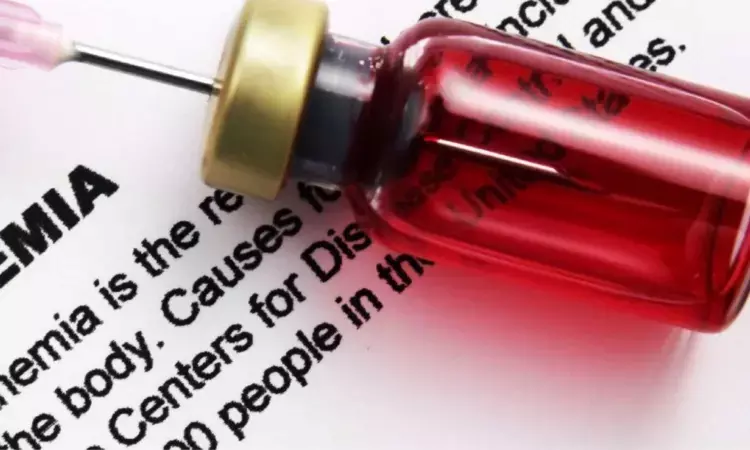- Home
- Medical news & Guidelines
- Anesthesiology
- Cardiology and CTVS
- Critical Care
- Dentistry
- Dermatology
- Diabetes and Endocrinology
- ENT
- Gastroenterology
- Medicine
- Nephrology
- Neurology
- Obstretics-Gynaecology
- Oncology
- Ophthalmology
- Orthopaedics
- Pediatrics-Neonatology
- Psychiatry
- Pulmonology
- Radiology
- Surgery
- Urology
- Laboratory Medicine
- Diet
- Nursing
- Paramedical
- Physiotherapy
- Health news
- Fact Check
- Bone Health Fact Check
- Brain Health Fact Check
- Cancer Related Fact Check
- Child Care Fact Check
- Dental and oral health fact check
- Diabetes and metabolic health fact check
- Diet and Nutrition Fact Check
- Eye and ENT Care Fact Check
- Fitness fact check
- Gut health fact check
- Heart health fact check
- Kidney health fact check
- Medical education fact check
- Men's health fact check
- Respiratory fact check
- Skin and hair care fact check
- Vaccine and Immunization fact check
- Women's health fact check
- AYUSH
- State News
- Andaman and Nicobar Islands
- Andhra Pradesh
- Arunachal Pradesh
- Assam
- Bihar
- Chandigarh
- Chattisgarh
- Dadra and Nagar Haveli
- Daman and Diu
- Delhi
- Goa
- Gujarat
- Haryana
- Himachal Pradesh
- Jammu & Kashmir
- Jharkhand
- Karnataka
- Kerala
- Ladakh
- Lakshadweep
- Madhya Pradesh
- Maharashtra
- Manipur
- Meghalaya
- Mizoram
- Nagaland
- Odisha
- Puducherry
- Punjab
- Rajasthan
- Sikkim
- Tamil Nadu
- Telangana
- Tripura
- Uttar Pradesh
- Uttrakhand
- West Bengal
- Medical Education
- Industry
COVID-19 vaccination induces Paroxysmal nocturnal hemoglobinuria flare: Case report

Dr Kawthar Jarrah at Division of Hematology-Oncology, Department of Internal Medicine, American University of Beirut Medical Center, Beirut, Lebanon and colleagues have reported a rare case of exacerbation of Paroxysmal Nocturnal Hemoglobinuria following COVID-19 vaccination. The case has been published in the journal of Blood Cells, Molecules, and Diseases.
Paroxysmal Nocturnal Hemoglobinuria (PNH) is a rare acquired hematological illness caused by a hereditary mutation in the X-linked gene phosphatidylinositol glycan class A. (PIGA). As a result, PNH patients are more likely to develop intravascular hemolysis, cytopenia, organ failure, thrombosis, and hypocellular or dysplastic bone marrow.
According to the history, 29-year-old female reported to the clinic for examination of weariness and shortness of breath in the context of a recent start of pancytopenia. She had previously been healthy except for an abnormal complete blood count, mainly moderate thrombocytopenia that had not been addressed several years ago. Six months prior, she contracted a minor COVID-19 infection and was treated at home with supportive treatment. However, she began to have frequent headaches and palpitations after that. She received her first mRNA COVID-19 vaccination four months after recovering from COVID-19 illness (Pfizer BioNTech). A week later, she stated that her headache had worsened and that paracetamol had failed to relieve it. She denied any neurological or optical deficits.
Blood tests revealed macrocytic anemia, leukopenia, and thrombocytopenia. Blood chemistry, liver function, and renal function were all within acceptable bounds. The results of the haptoglobin Comb's test, lactate dehydrogenase (LDH), and blood smear all pointed to non-immune induced intravascular hemolysis. A bone marrow aspirate was performed, which indicated erythroid hyperplasia with no signs of cancer. PNH was suspected, and flow cytometry validated the diagnosis by demonstrating loss of Anchor proteins in granulocytes (60%) and monocytes (50%) as well as RBCs (3 percent ). A whole-body CT scan involving IV contrast was then conducted, and no abnormalities were seen.
The researchers assume that the cause was the original SARS Cov2 infection, which was subsequently intensified after getting the mRNA COVID19 vaccination; nevertheless, the patient was worked up only when her headache symptoms worsened a week after receiving the first dose of vaccine. It is uncertain if the acute COVID-19 infection increased a pre-existing PIG-A mutation, which was then enhanced by vaccination.
In conclusion, COVID-19 immunization may cause a PNH flare and, as a result, the appearance of PNH signs in people who have not been diagnosed with PNH. Clinicians should thus be wary of this uncommon but significant entity in order to efficiently diagnose and treat such patients.
Reference:
Jarrah K, Al Mahmasani L, Atoui A, Bou-Fakhedrin R, Taher AT. Manifestation of paroxysmal nocturnal hemoglobinuria after COVID-19 mRNA vaccination. Blood Cells Mol Dis. 2022;93:102641. doi:10.1016/j.bcmd.2021.102641
Medical Dialogues consists of a team of passionate medical/scientific writers, led by doctors and healthcare researchers. Our team efforts to bring you updated and timely news about the important happenings of the medical and healthcare sector. Our editorial team can be reached at editorial@medicaldialogues.in.
Dr Kamal Kant Kohli-MBBS, DTCD- a chest specialist with more than 30 years of practice and a flair for writing clinical articles, Dr Kamal Kant Kohli joined Medical Dialogues as a Chief Editor of Medical News. Besides writing articles, as an editor, he proofreads and verifies all the medical content published on Medical Dialogues including those coming from journals, studies,medical conferences,guidelines etc. Email: drkohli@medicaldialogues.in. Contact no. 011-43720751


